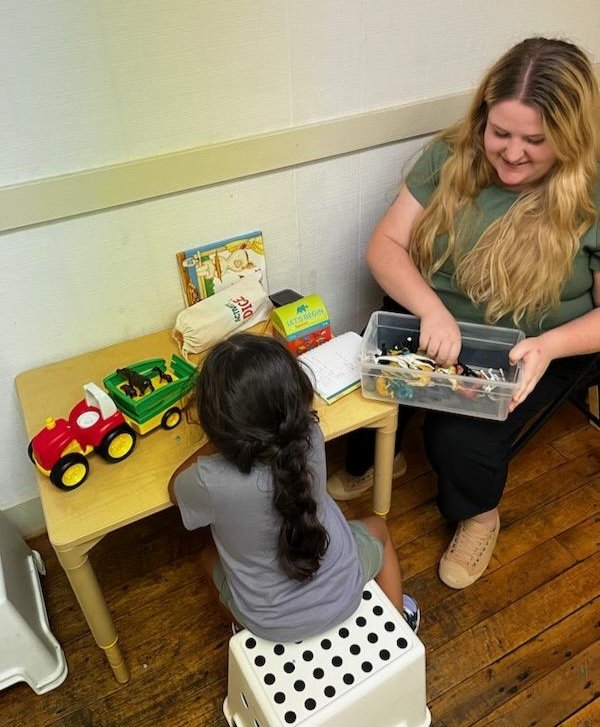Speech-language pathologists (SLPs) work with clients who have communication disorders or differences and want to communicate more effectively. They also work with people who have swallowing or feeding difficulties. Individualized evaluations and therapy plans address each client’s unique needs and perspectives and build upon their strengths and interests. Movement, play, music, books, and a wide variety of other activities may be used to support learning of new and important skills.
Some individuals may need help with their speech sounds (pronouncing words more clearly), including children who have difficulty producing certain sounds (e.g., ‘r’), difficulty learning patterns of sounds (e.g., leaving off the ending sounds in every word), or difficulty with sound movements between words and phrases. Others may need support to improve their understanding and/or use of language. If your child has difficulty following directions, understanding language-based tasks, combining words into phrases or sentences, connecting ideas together using language, retelling personal stories, or using language through a means of communication other than talking (e.g., AAC), they may benefit from direct support from an SLP. Speech therapy may also address functional improvements in the areas of social skills, cognitive-communication (e.g., attention, memory, problem solving), executive functions, literacy skills, hearing, voice, fluency (stuttering), swallowing, and/or feeding.

















